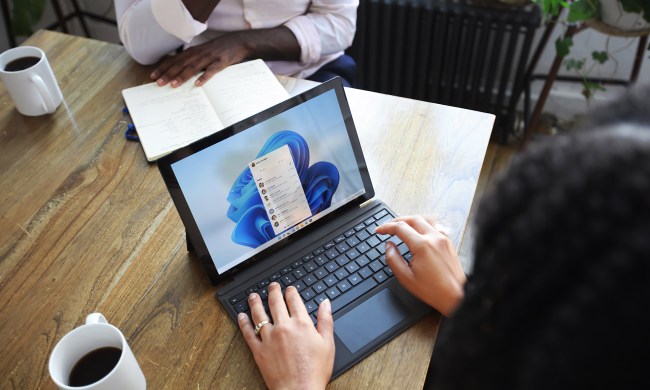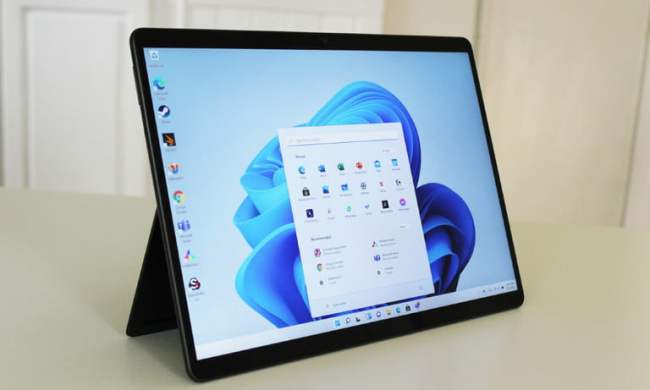Huawei introduced a new cloud service during CES Asia 2018 that streams Windows 10 to specific Android smartphones. Called Huawei Cloud PC, this service requires a special Cloud PC app served up through the Huawei App Store for Android. The app enables you to view the Windows 10 desktop on the smartphone’s screen, or on a connected external display.
According to a hands-on report from the show, the service is based on Huawei’s FusionCloud Desktop platform originally developed for the enterprise. Huawei’s service is meant to be used on “thin clients,” another word for PCs with extremely low-end hardware. These thin clients access a virtual PC running in the cloud that provides the operating system, processing power, and large storage spaces not possible on the thin client machine.
Of course, that means Windows 10 is running in the cloud and not locally on your device. Streaming requires a stable network and/or internet connection, thus the responsiveness of the virtual machine depends on your connection. A bad connection makes your Windows 10 experience frustratingly slow to respond to any manual input, possibly resulting in data loss.
The setup demonstrated during CES Asia 2018 relied on a docked smartphone connected to a big display via an HDMI cable. Given the dock used the phone’s single USB-C port, mouse and keyboard input was made possible through a Bluetooth connection. What’s interesting is that the Huawei Desktop Protocol used in the service enables Windows 10 running in the cloud to access your phone’s stored photos and other files.
Another hands-on demonstration showed how an owner of the Mate 10 smartphone could take a photo and then edit the image in Photoshop installed on Windows 10 in the cloud. You can install programs and apps on the virtual machine, and even open large CAD drawings, which you can’t do on a smartphone.
Due to latency issues, the service will only be available in China for now given the location of Huawei’s servers. If Huawei Cloud PC proves to be popular, the company may purchase additional servers throughout Europe to expand the service to other countries. But given Huawei’s current status with the American government, launching the service in the United States may not be an option.
At one time Microsoft pushed a mobile version of Windows 10 for smartphones. Although phones sporting the platform slowly rode off into the sunset, Microsoft kept the dream alive in its Windows Insider program. But its demise seemed inevitable and the platform finally came it its conclusion in January when Microsoft stopped providing preview builds.
Android currently dominates the smartphone market outside of Apple’s iPhone family, and Microsoft even serves up its best services on both platforms. Streaming Windows 10 from the cloud appears to be the next-best thing to actually having Windows 10 Mobile installed on your device. But streaming Windows 10 won’t be free, as Microsoft typically charges a per-seat licensing fee.
Huawei’s current list of compatible devices for its new service includes the P20 and P20 Pro, Mate 10 and the Mate R5 smartphones along with the MediaPad M5 tablet.

